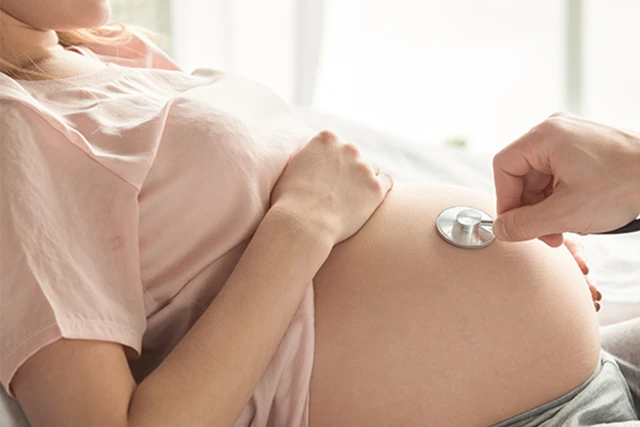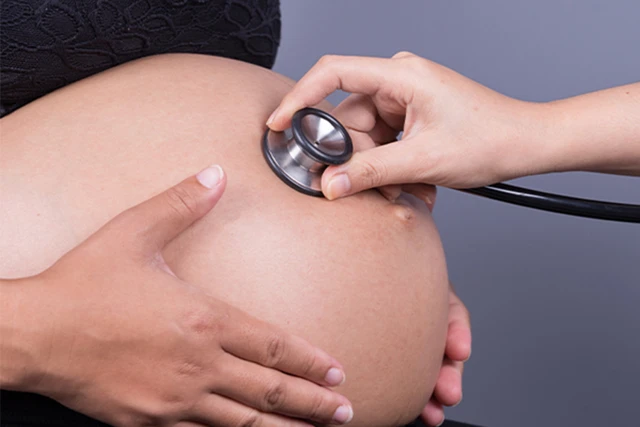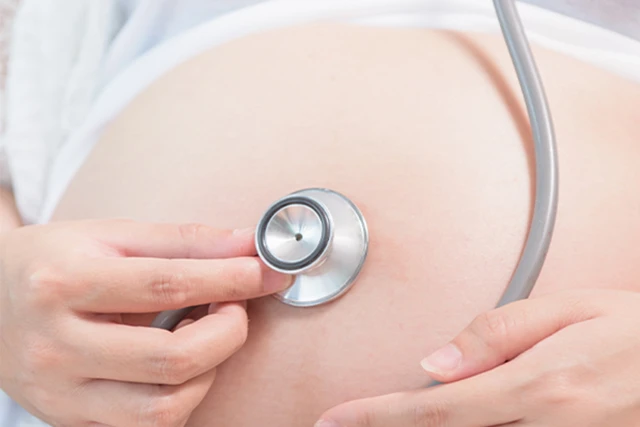Hearing your baby's heartbeat for the first time is an emotional and unforgettable experience for expectant mothers. It is a powerful confirmation of the life growing inside and an important milestone in pregnancy. So when can you hear your baby's heartbeat? This article explores when you can hear your baby's heartbeat, the methods to detect it, and what pregnant mothers need to know during this important period.

When Can You Hear the Fetal Heartbeat?
Fetal Heart Development
The fetal heart begins to form early in pregnancy, with the first structures appearing around the third week after conception. By the fifth or sixth week, the heart begins to beat, although it may not yet be detectable by conventional methods. At this stage, the heart is still developing but is already working to pump blood throughout the fetus's tiny body.
- 3-4 Weeks: The heart tube begins to form, which will eventually develop into a complete heart.
- 5-6 Weeks: The heart begins to beat, although not yet strong enough to be detected by external devices.
When Can Fetal Heartbeat Be Detected?
The ability to detect a fetal heartbeat depends on the method used and the stage of pregnancy. Here is some information about timing and method:
- 6-7 Weeks: Transvaginal Ultrasound Around weeks 6 to 7 of pregnancy, a transvaginal ultrasound can usually detect a fetal heartbeat. This involves inserting an ultrasound probe into the vagina, which allows for a better view of the inside of the uterus. The heartbeat at this stage may be weak and range from 90 to 110 beats per minute.
- 8-12 Weeks: Doppler Ultrasound Between weeks 8 and 12, a Doppler ultrasound, often performed during routine prenatal visits, can detect your baby's heartbeat. This handheld device amplifies the sound of your baby's heartbeat, allowing you to hear it for the first time. The heartbeat is usually stronger and ranges from 120 to 160 beats per minute.
- After 20 Weeks: Special Stethoscope (Fetoscope) After the 20th week of pregnancy, a special stethoscope (fetoscope) can be used to listen to the fetal heartbeat. This method is less commonly used today due to the popularity of Doppler devices, but is still an option in some medical practices.
Factors Affecting Fetal Heartbeat Hearing
Many factors can affect when you can hear your baby's heartbeat:
- Gestational Age: The exact timing can vary depending on the gestational age. The earlier in pregnancy, the more difficult it is to detect a heartbeat.
- Mother's Body: Women with a higher body mass index (BMI) may have difficulty detecting an early fetal heartbeat because the ultrasound waves have to pass through more tissue.
- Fetal Position: The position of the fetus can also affect the ability to detect a heartbeat. If the baby is located towards the back of the uterus, it may take longer to hear the heartbeat.
- Equipment Quality: The sensitivity and quality of the ultrasound or Doppler equipment used can also affect the detection of a fetal heartbeat.

When Can You Hear the Fetal Heartbeat?
What If I Don't Hear Early Heartbeats?
Not hearing a fetal heartbeat early in pregnancy can be worrying, but it's not always a cause for concern. Here are some reasons why a heartbeat may not be immediately detectable:
- Inaccurate Conception Date: If the pregnancy is earlier than originally estimated, the heartbeat may not be detected. A repeat ultrasound in a week or two will usually provide clearer information.
- Technical Issue: Sometimes the device used may not be sensitive enough to detect the heartbeat, especially in the early stages of pregnancy.
- Fetal Position: As mentioned earlier, the position of the fetus can make it difficult to detect a heartbeat, especially if the fetus is lying with its back to the ultrasound probe.
Emotional Impact of Hearing the Fetal Heartbeat
For expectant mothers, hearing their baby’s heartbeat for the first time is often a powerful emotional experience. It brings reassurance and a deeper connection to the child growing inside. Many mothers report feeling an increased attachment to their baby after hearing the heartbeat, and this is often a significant milestone in their pregnancy journey.
Fetal Heart Rate Monitoring Throughout Pregnancy
Fetal heart rate monitoring is an important part of prenatal care. It provides important information about the health and development of your baby. Here is how heart rate is typically monitored:
- Routine Pregnancy Checkups: During routine prenatal checkups, your doctor will listen to your baby's heartbeat using a Doppler ultrasound. This usually begins between weeks 10 and 12 of pregnancy.
- Non-Stress Test (NST): Late in pregnancy, especially when there are concerns about the baby's health, a non-stress test may be performed. This test monitors the baby's heart rate to evaluate the heart's response to movement.
- Electronic Fetal Heart Monitoring (EFM): During labor, electronic fetal heart monitoring is used to continuously monitor the baby's heart rate and the mother's contractions, ensuring that the baby is tolerating labor well.

When Can You Hear the Fetal Heartbeat?
What Does a Healthy Fetal Heartbeat Sound Like?
A healthy fetal heart rate is usually strong and regular, ranging from 120 to 160 beats per minute during the second and third trimesters. The sound is often described as sounding like a steady, fast galloping horse. Any significant deviation from this pattern requires further evaluation by your doctor.
What If There Is An Abnormality In The Fetal Heart Rate?
Sometimes, doctors can detect abnormalities in the fetal heart rate, such as:
- Bradycardia: A heart rate that is slower than normal (less than 120 beats per minute). This may be a sign of fetal distress and requires further monitoring or intervention.
- Tachycardia: A heart rate that is faster than normal (over 160 beats per minute). This may indicate problems such as fetal distress, infection, or other complications.
- Irregular Heartbeat: Occasionally, an irregular heartbeat may be detected, which may or may not be cause for concern. Often this is a temporary problem that resolves on its own, but it still needs to be thoroughly checked by a doctor.
Advice for Pregnant Moms: Preparing for Your First Fetal Heartbeat Hearing
Pregnant mothers can prepare for hearing the fetal heartbeat by:
- Stay Informed: Understanding your baby's development will help you adjust your expectations about when you can hear the heartbeat.
- Regular Pregnancy Checkups: Regular pregnancy checkups are important to monitor your baby's health and detect the heartbeat in time.
- Reduce Anxiety: It's natural to be anxious, but try to stay calm if you don't hear a heartbeat right away. Your doctor will guide you through the next steps.
- Capture the Moment: Many parents choose to capture the moment they first hear their baby's heartbeat. Check with your doctor to see if this is okay.

When Can You Hear the Fetal Heartbeat?
Conclusion “When Can You Hear the Fetal Heartbeat?”
Hearing your baby’s heartbeat for the first time is a profound experience for mothers and an important milestone in pregnancy. Typically, the heartbeat can be detected as early as 6 weeks with a transvaginal ultrasound and becomes more audible with a Doppler ultrasound between 8 and 12 weeks. Many factors can influence when the heartbeat is heard, but it is important to maintain regular prenatal care to monitor your baby’s development.
Armed with this knowledge, expectant mothers can feel better prepared and more connected as they continue their pregnancy journey, eagerly awaiting the day they welcome their baby.
Website: https://wilimedia.co
Fanpage: https://www.facebook.com/wilimedia.en
Mail: support@wilimedia.co
